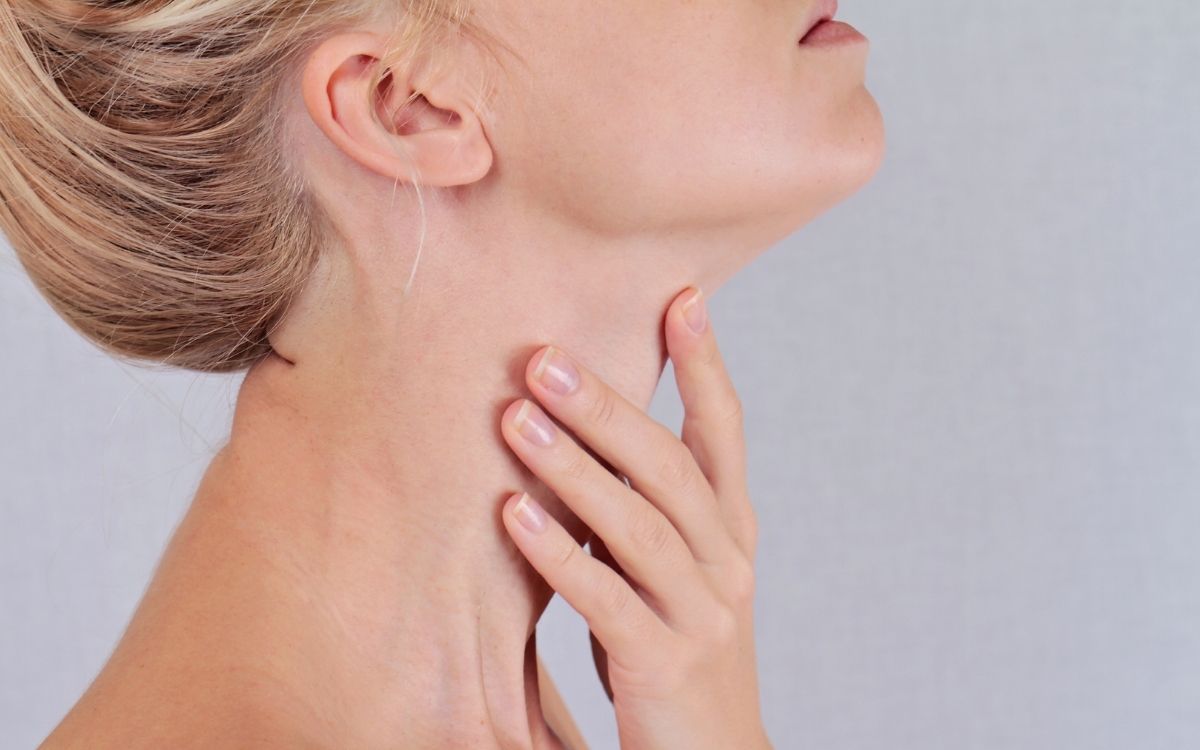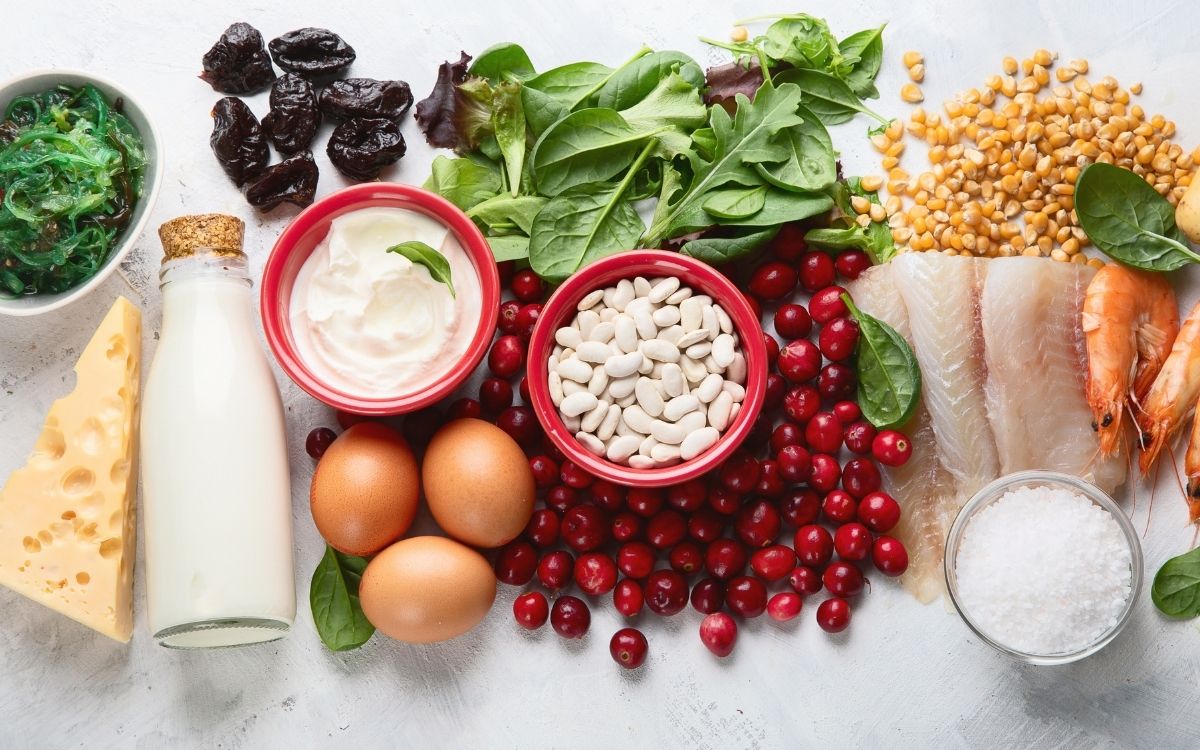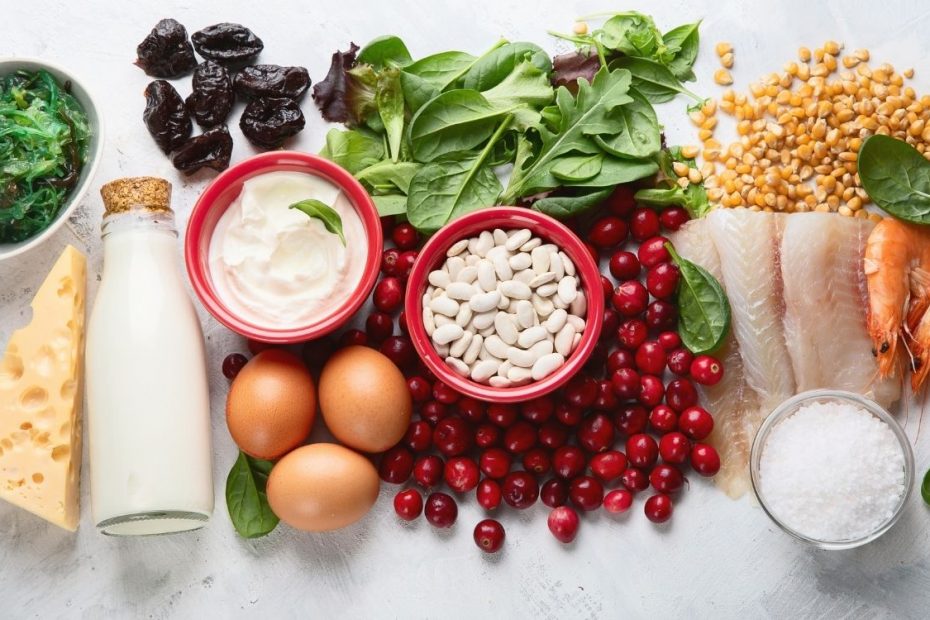Sources of iodine
Iodine is a very important trace element for the human body. The production of the thyroid hormone – thyroxine – occurs only in the presence of iodine in a certain amount. This takes up to 90 percent of the iodine consumed with food.
Thyroxine and thyroid gland control and increase the intensity of metabolism: water-salt, proteins, fats and carbohydrates. They also regulate heat exchange in the body, cell division, liver and cardiovascular function. In addition, the nervous system, the emotional state of a person and his psychological health depend on this hormone.
Therefore, the family doctor, in case of complaints of an unbalanced state, will first of all send you to an endocrinologist – to check the level of thyroxine in the blood and examine the state of the thyroid gland.
For normal support of the thyroid gland in the body, from 150 to 200 mcg of iodine is needed (depending on age), the need for iodine in children, pregnant women and lactating mothers is increased. Expectant mothers need 250 micrograms of iodine per day.

It is interesting that food is not the only source of micronutrient intake in our body. We get iodine with water and air, but only if there is enough iodine in the soil. The man-made Chernobyl disaster, unfortunately, almost completely canceled out the normal fullness of iodine throughout Ukraine – the elements of radioactive decay have the ability to displace iodine from the soil and atmosphere.
Therefore, it is not surprising that in Ukraine more than a third of residents have signs of iodine deficiency, but they do not even know about it, since at the initial stages, changes in health are very insignificant.
If not enough iodine is supplied to the body with food, the thyroid gland produces little thyroxine. This condition is called hypothyroidism or iodine deficiency.
What worries:
- work of the nervous system;
- forgetfulness;
- decreased attention and response;
- irritability;
- sleepiness;
- weakened immunity;
- problems with the heart and blood vessels;
- arrhythmia, increased blood pressure;
- decrease in the level of hemoglobin in the blood;
- increased body weight.
Even normal weight is regulated by thyroxine. When there is too little energy for energy expenditure to proceed in a normal way, it is deposited in the form of fat stores.
If the iodine deficiency has not been replenished for a long time, the thyroid tissue begins to grow, trying to compensate for the lack of thyroxine production by the number of cells. This enlargement of the thyroid gland is called a goiter.
It is easy to check if there is enough iodine in the body with the help of urine analysis, along with which excess iodine is removed.
A common “popular” method for assessing the rate of “absorption” of an iodine mesh applied to the skin is a delusion that is dangerous to health.

How to Replenish Iodine Deficiency?
Products containing iodine are found in every kitchen.
Products – record holders for iodine content
Seaweed
She really is a real record holder for iodine content – 300 mcg per 100 grams, which is twice the daily requirement! In addition, seaweed has only 25 calories (per 100 grams), almost no fat and carbohydrates. This is a real find for those who need to replenish iodine in the body, and it is also an ideal product for those who follow the figure.
Cod
Cod is an excellent source of protein for people who watch their diet: white fish is low in fat and calories, but high in vitamins and elements, including iodine. One serving (100 grams) contains approximately 110 mcg of iodine. Also, cod is rich in calcium, magnesium, potassium, phosphorus, vitamin E and B vitamins, especially vitamin B12, which is involved in the normal functioning of the cardiovascular system.
Tuna
Tuna is a more fatty fish than cod, but this makes it no less useful. Among the valuable properties of tuna is its ability to prevent stroke. Recent studies have found that those who consume tuna four to five times a week have a 30% lower risk of stroke. Tuna contains a lot of potassium, phosphorus, calcium, magnesium, iron and iodine (about 18 mcg in 100 grams).
Turkey breast
Another great and healthy source of iodine. The pluses of turkey are high amounts of protein and low percentage of fat. In addition, a high concentration of nutrients: calcium, potassium, zinc, iron, phosphorus, iodine (about 37 μg per 100 grams) and B vitamins.
Prunes
In addition to saturation with iodine, it regulates blood sugar levels, lowers cholesterol and strengthens bones. Prunes also contain vitamin K and beta-carotene.
Iodized Salt
Despite its name, it retains its properties no longer than 3-4 months, even in a closed container. With intensive boiling, iodine from such salt simply evaporates. With different methods of cooking products, its losses range from 22 to 60 percent. Iodine also quickly evaporates from wet salt and open salt shakers.
Still, it is better to supplement the diet with special products containing iodine and periodically take special iodine-containing complexes.
Since many people do not like seaweed and sea fish, Amrita suggests supplementing your diet with an iodine supplement called Phytoiod Balance.
“Phytoiod Balance” contains iodine-containing extract and kelp powder, Jerusalem artichoke extract, as well as zinc and selenium, which help the body absorb this iodine. The package contains 30 capsules – monthly prevention of iodine deficiency in the body.
You can take Phytoiod Balance from Amrita for up to three months without a break.
Take care of your health – ensure stable functioning of the thyroid gland and the whole body!
